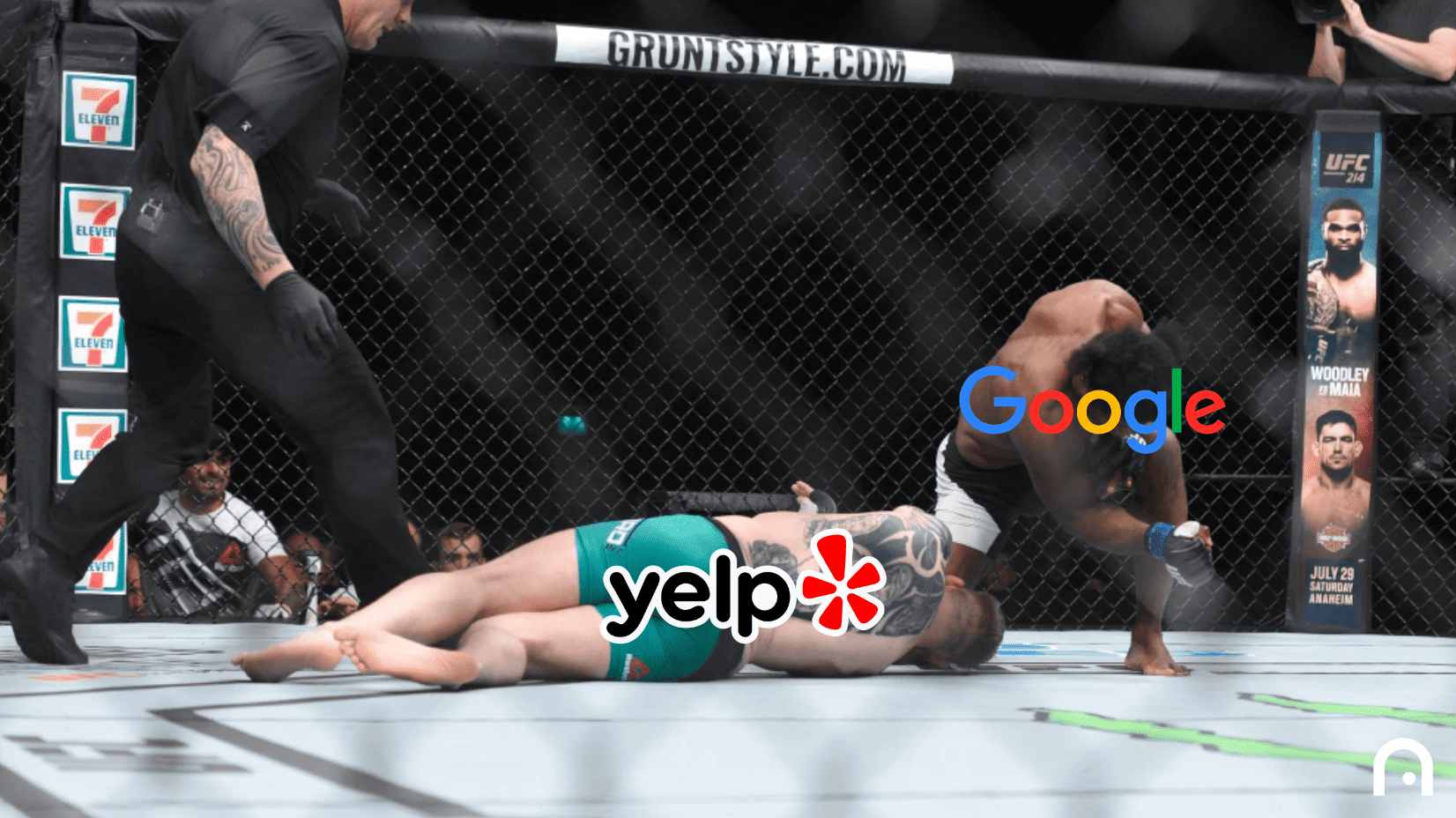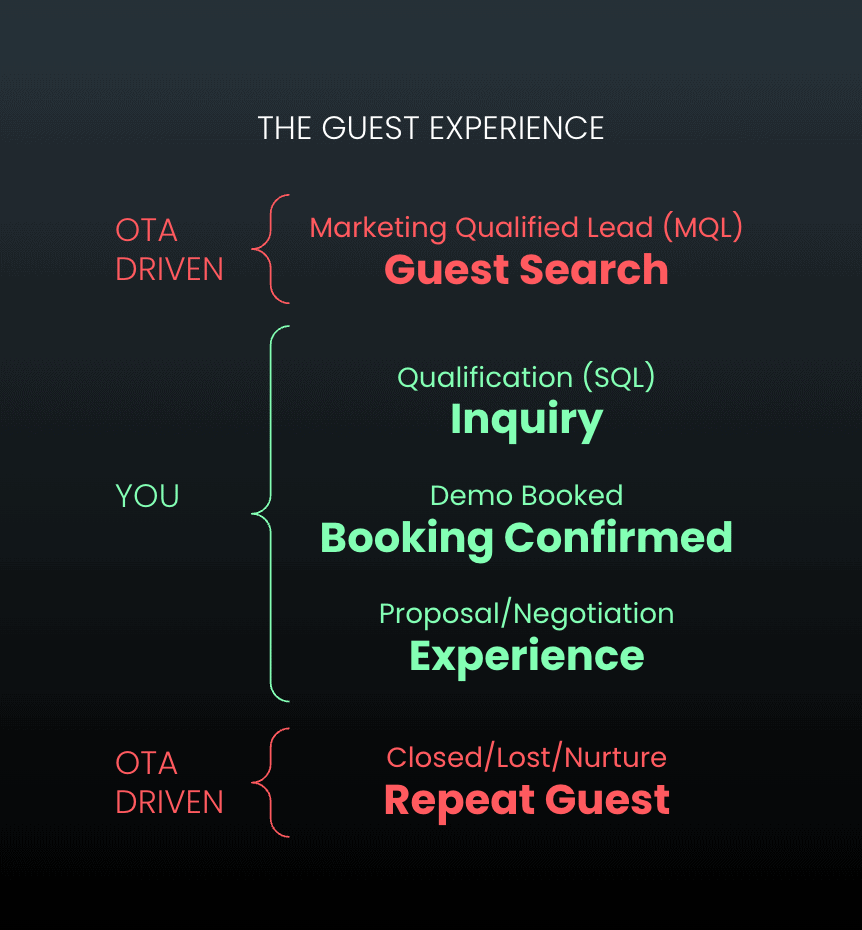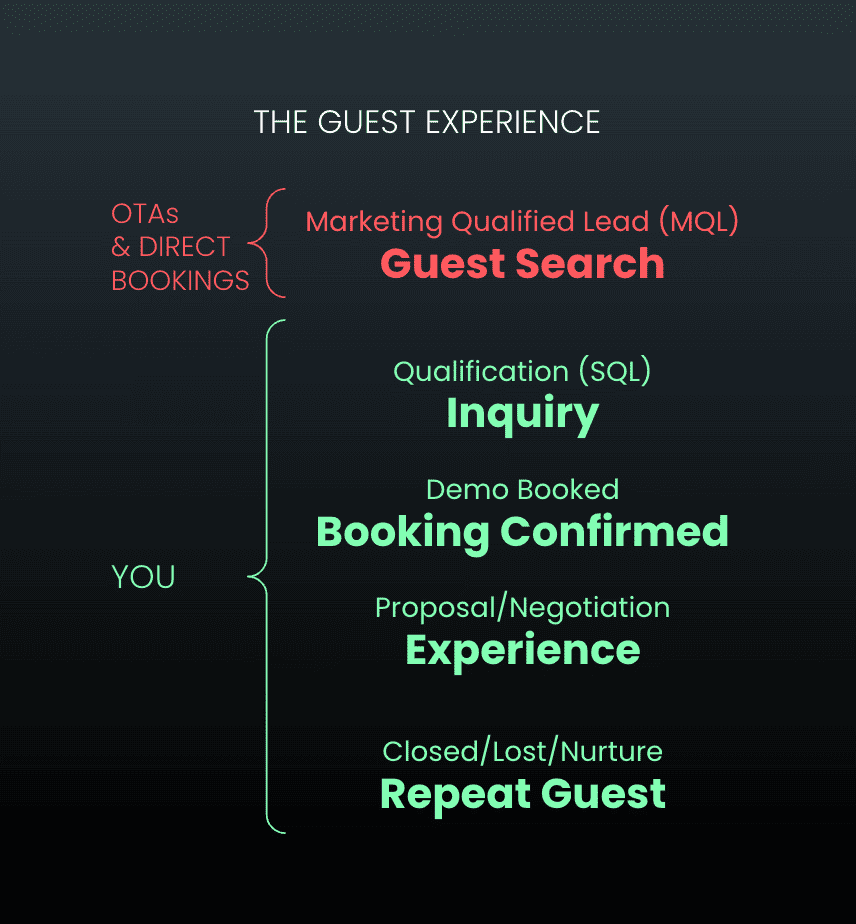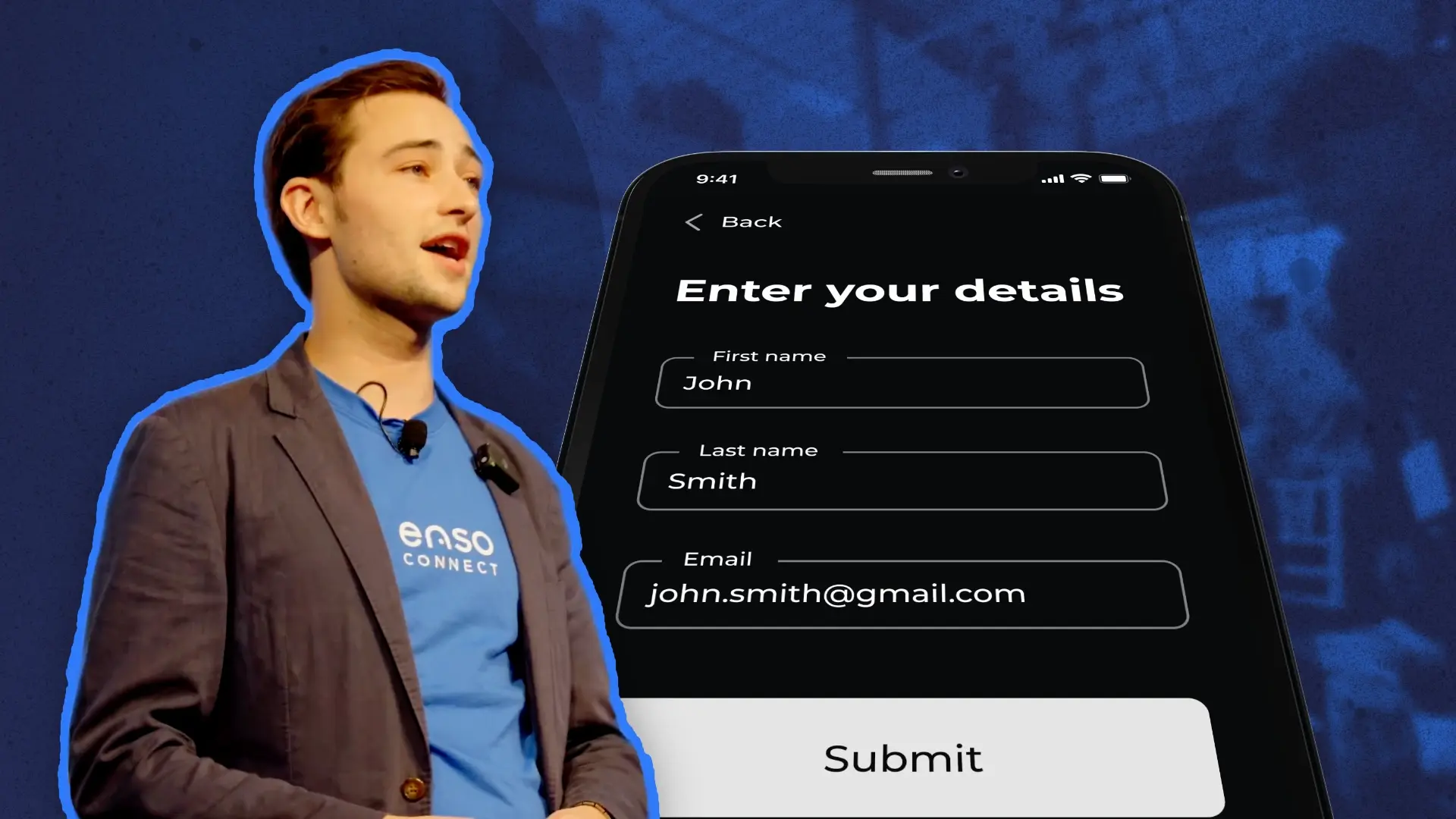Building a Hospitality Business for this Decade: Own Your Data
Today’s market demands short-term rental professionals focus on profitability. This means that establishing a direct contact with guests has become essential, not just a nice to have. Hence more hospitality operators seek to build on “owned land,” favoring the benefits of direct channels over third-party sites. While there are many advantages to having visibility with online travel agencies, building a direct booking strategy is important. The foundation of the direct booking strategy for short-term rentals lies in owning and leveraging data.
For more information and actionable tips, we are breaking down the thesis, shared by Francois Gouelo at the Book Direct Show. The recent tech advancement make building a solid data strategy more crucial now than ever before. Of course we mean the artificial intelligence boom and its availability for property managers. Now is the time to collect, centralize and take action on your data. We are sharing a guide on how to do this without annoying your guests and overload your team.
Watch the recording of the “Building Your Vacation Rental Business for This Decade” workshop from The Book Direct Show.
TL;DR: Breaking down the main ideas of the workshop plus current updates.
We’ll outline actionable steps for vacation rental businesses to use data for driving return guests and direct bookings.
The Transformative Role of Data
Data as the Foundation of Innovation
The digital age has transformed the essence of entrepreneurial success, with strategic data ownership and use at its core. This paradigm shift underscores the transition from traditional business models to strategies that are not only growth-oriented but sustainable.
Predictive Analytics and Personalized Services in Hospitality
How do you integrate these principles into the hospitality industry? Exceptional guest experience is born out of predictive analytics, personalized services, and seamless operational efficiency—all fueled by data.
The future of business lies in understanding, owning, and skillfully leveraging data. As we navigate through the complexities of this decade, let’s use data to embrace new opportunities and transform our industry.
Reimagining Guest Experience Through Data
The Power of Predictive Insights
Let’s reimagine the guest experience through a data-centric lens. Understanding and predicting guest needs leads to unparalleled service delivery. Immediate responses, personalized messages, tailored recommendations, one-click purchases are bridging the gap between traditional hospitality services and the digital future.
Data Ownership and Competitive Edge
The focus on data ownership enables businesses to distinguish themselves in a crowded marketplace. This approach not only enhances operational efficiency but also fosters deeper connections between businesses and their guests.
The Google and Yelp Example
There was a notable period when Google, in its effort to enhance its local search offerings, integrated Yelp reviews into its Google Maps and local search results. This move allowed users to see Yelp’s crowd-sourced reviews directly within Google’s platform, providing valuable insights into businesses without having to visit Yelp’s website. However, this integration was part of a broader strategy by Google to bolster its own reviews ecosystem. Over time, as Google encouraged users to leave reviews directly on Google Maps and its other services, it began to build a substantial repository of its own user-generated content. This shift gradually decreased the reliance on Yelp’s reviews and helped Google Maps become a go-to destination for local business reviews, effectively competing with Yelp in the local search and reviews market. This development demonstrated Google’s ability to leverage external content to grow its services, subsequently capturing a significant share of the market that Yelp once dominated.

Data Dependency: Reverting the OTA game
Yelp got crushed because it had a massive data dependency. So what is this data dependency in your hospitality business? And how can you revert the OTA bookings game?
Your Business depends on potential customers – guests. OTAs (online travel agencies) depend on those same guests. But let’s not forget, OTAs also depend on you. But it’s all about the data they share with you, to be more precise – do not share with you. With the guest being at the center of this all, this is your data dependency.
How can we solve this?
You’ve been told the guest experience starts when they check-in to your rental properties. But, the guest experience starts when a guest searches. As a first step, any professional short-term rental company needs its own website.
Your Guest Experience is Your Sales Funnel
When comparing a traditional sales funnel to a one in a short-term rental business, it will look like this:
Marketing qualified leads (MQLs) are when guests search for a place to stay. Sales Qualified Leads (SQLs) – when potential guests inquire about the property. The confirmed booking is equal to a demo booked and the actual stay experience is the negotiation. The experience will define your final goal achievement – the repeat booking, equal to close lost, won or move to nurture.
OTAs have a complete control of your top of funnel and your repeat business. But with the great guest experience you can actually win on the latter. While you can’t compete with big booking platforms on the inventory size, brand equity or marketing power, you own your guest experience.
Why do popular booking sites control your repeat business? They deliver a streamlined experience. So can short-term rental owners and operators!
You can move from this:

to this:

Applying Data to Drive Direct Bookings
So how do we use data to drive more direct bookings in your short-term rental business?
Collect Data
How can you collect data from your guests? Guidebook links, verification links, check-in registration, payment links, website visitors data, Google Analytics, etc. Your property management software (PMS) and other other third-party platforms have data you can use to personalize interactions.
Here is just an example of information you can collect from guests: name, email, phone number, travel reason, preferences and restrictions, etc.
Centralize Data
How do you centralize all the information you have internally? We’ve discussed data warehousing in our recent webinar, talking about preparing an STR business for the future. Future is now and you need to have a single source of truth about your business internally.
Data warehousing is the practice of collecting data from a wide range of sources within a company into a database. It may be used to guide management decisions. In short-term rentals these resources are booking information, guest reviews, listing description, check-in steps, property guidebooks, customer support questions, etc. You can also gather details from social media, own direct booking site, listing site, channel manager, PMS, etc.
Put Data to Action – Deliver a Remarkable Guest Experience
You have all of this data, now what? There are many ways to close the loop of your guest experience.
- Personalizing your guest interactions all along the guest journey. Providing tailored suggestions according to guests preferences, interests, travel reasons, season, etc.
- Adapt your communication and guest messaging with the tools people want you to use. Instead of long emails, message your guests on WhatsApp, SMS or just send a link that proactively has all the information they need for a great stay.
- Use AI to answer quickly to any guests queries, provide AI-powered concierge services, quickly create personalized content for your audience.
Building Businesses for the Digital Age
Building a business today demands a fresh perspective on data, embracing its opportunities, and navigating its challenges with integrity. This direct booking revolution is about leveraging data’s potential to create meaningful, lasting impacts.
The Future of Hospitality is Personalized and Data-Informed
The future vision combines tech advancement with data-driven, personal, and human interactions. It’s a new era where every interaction is informed by data-driven insights, yet feels uniquely personal and deeply human. This balance is crucial, and businesses across industries begin to view their relationship with data in a new light.
Boost Your Direct Bookings with AI and Data Insights
